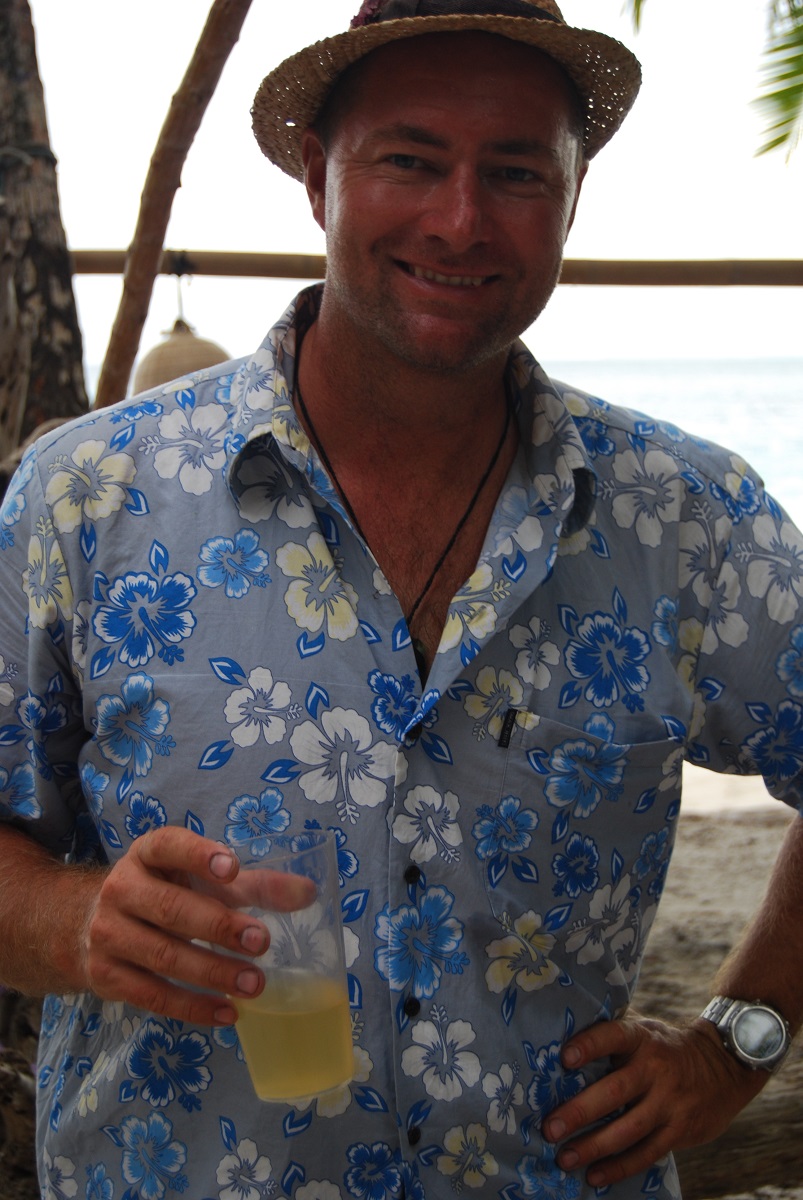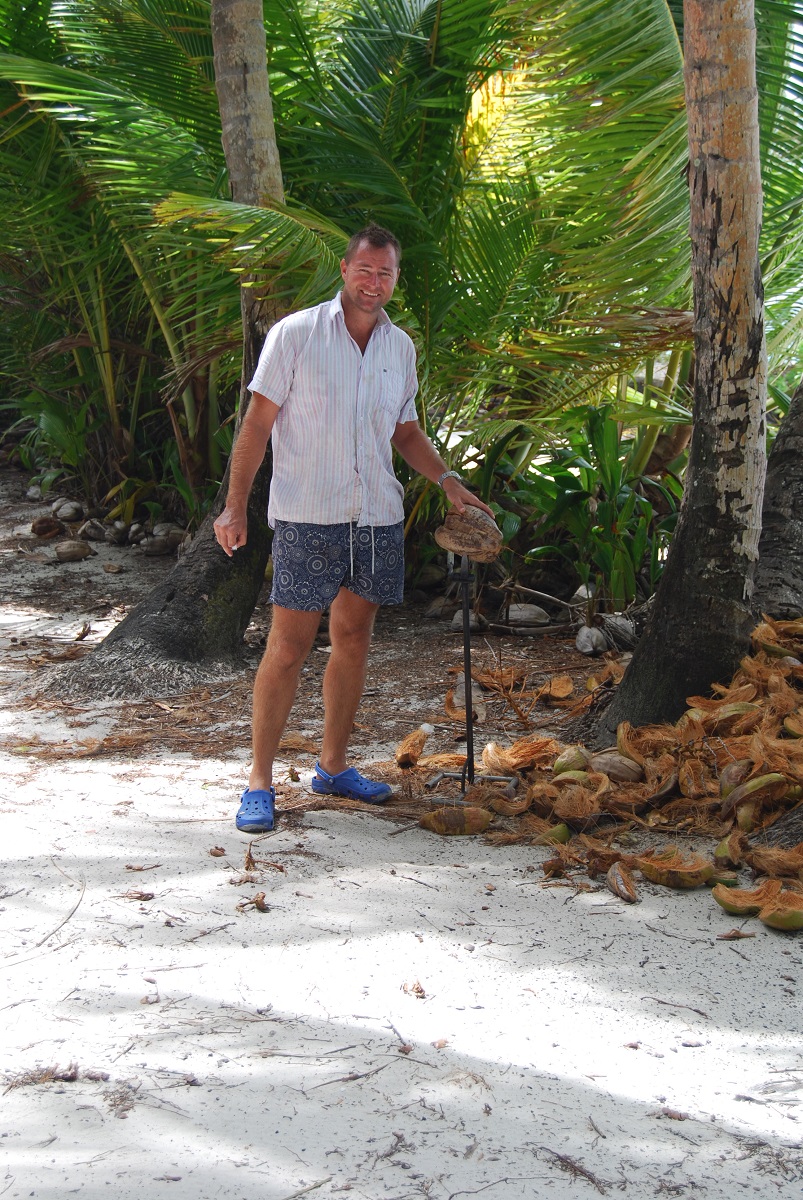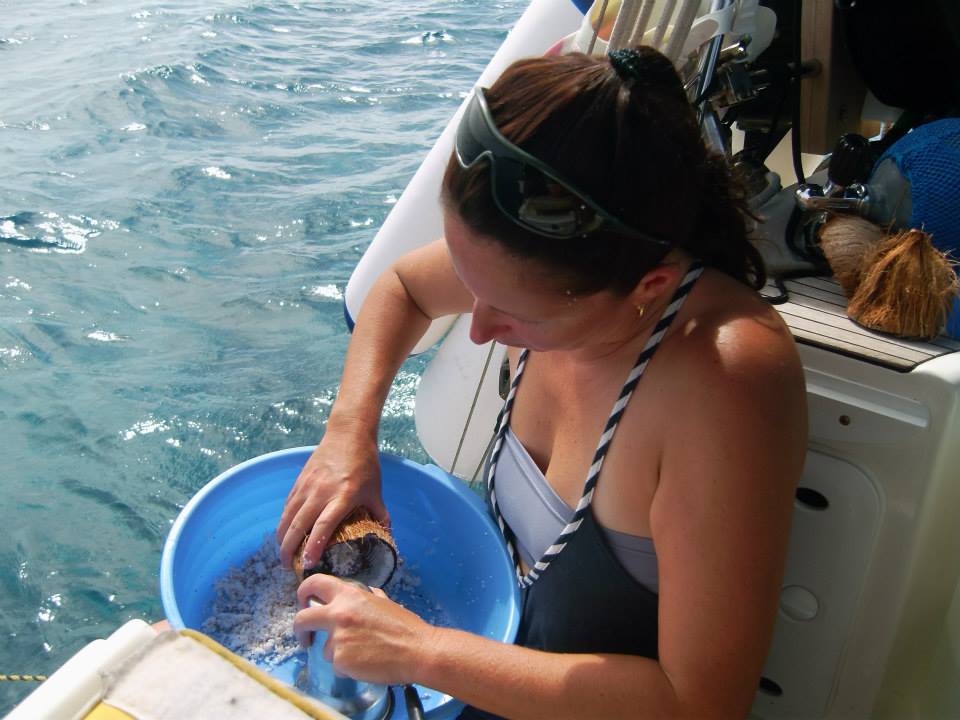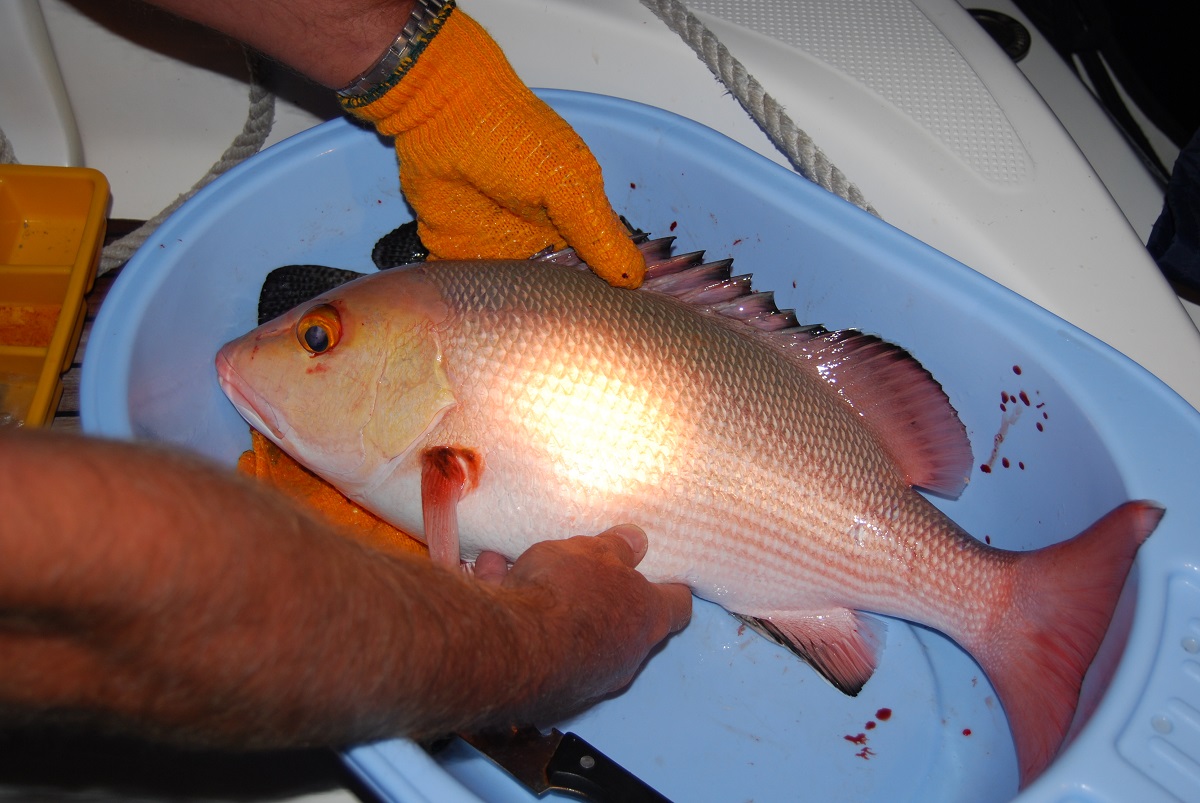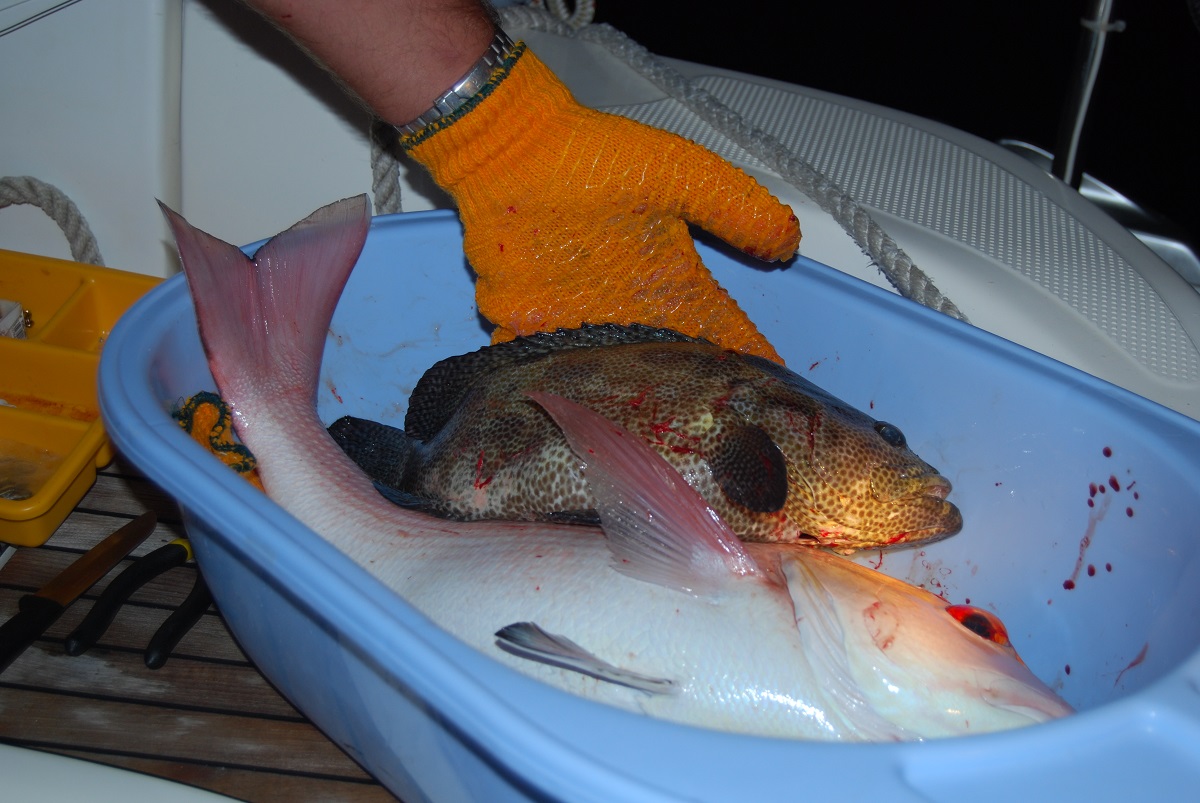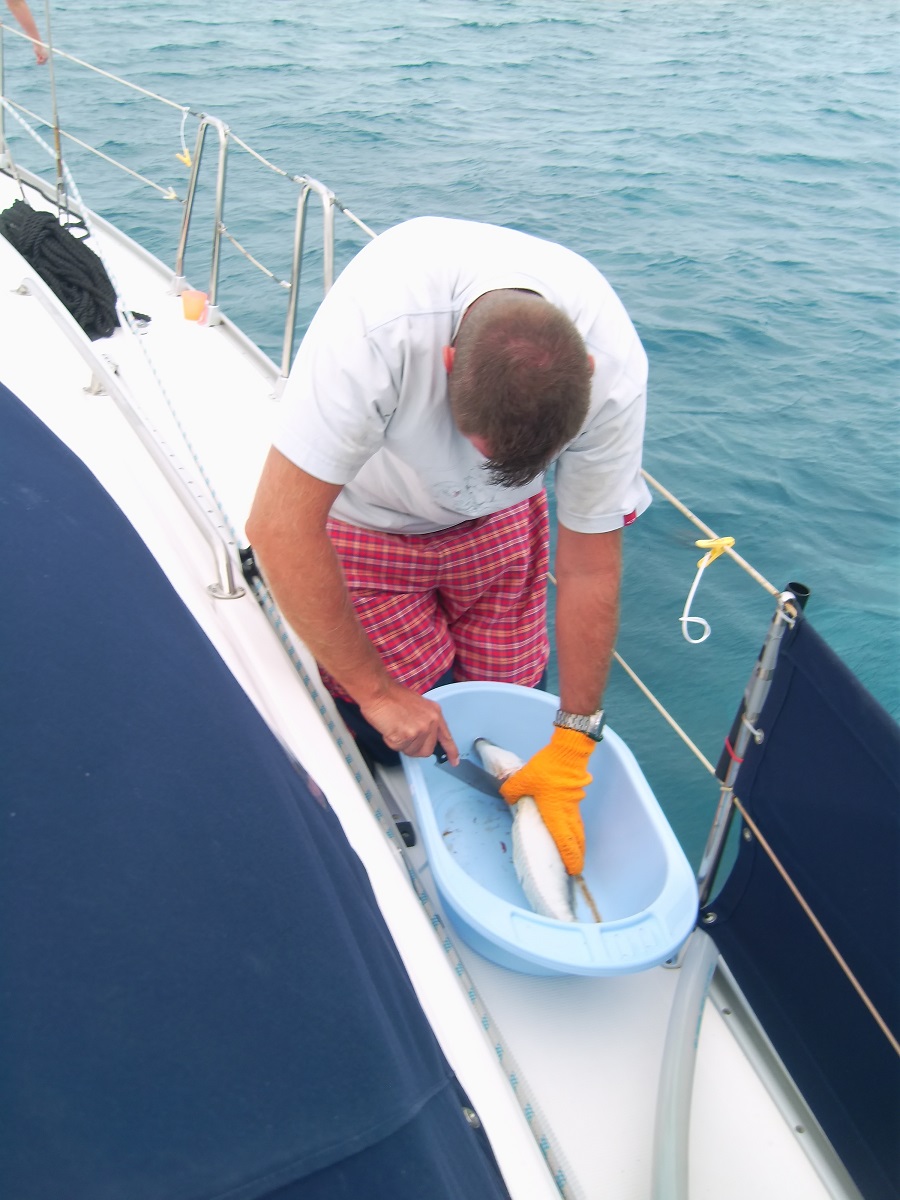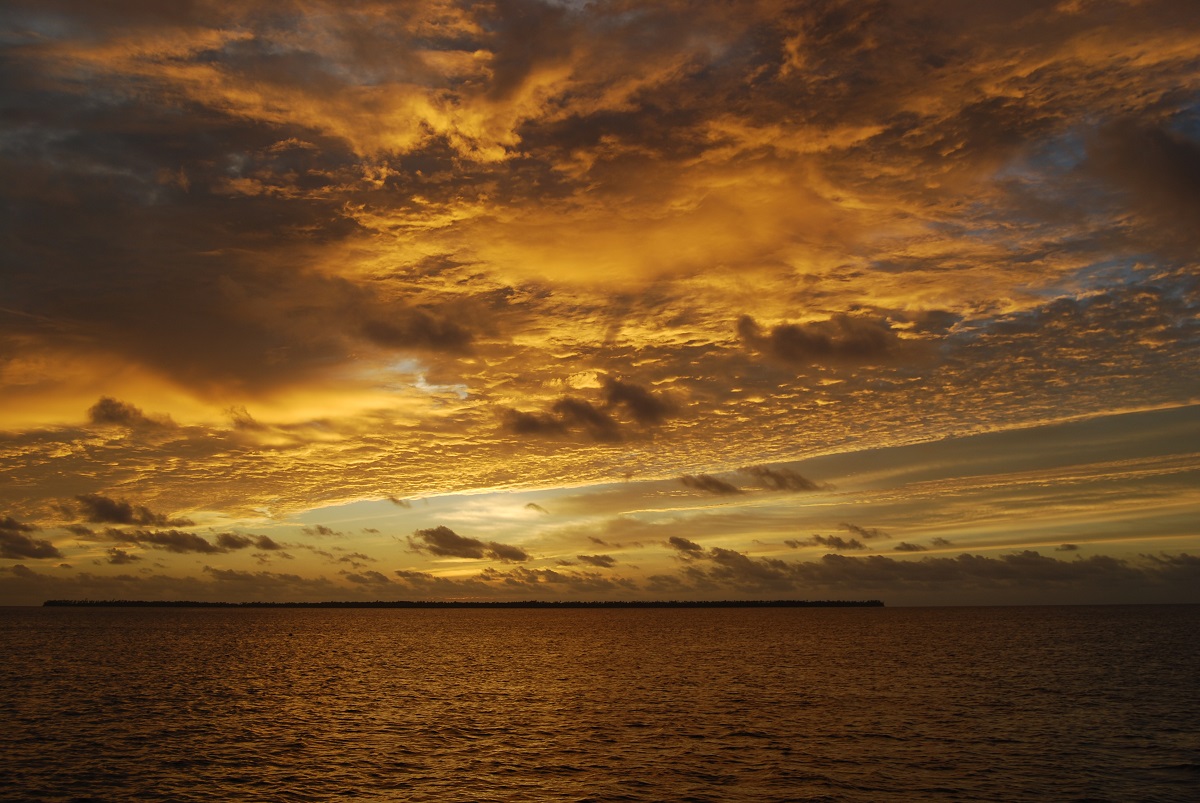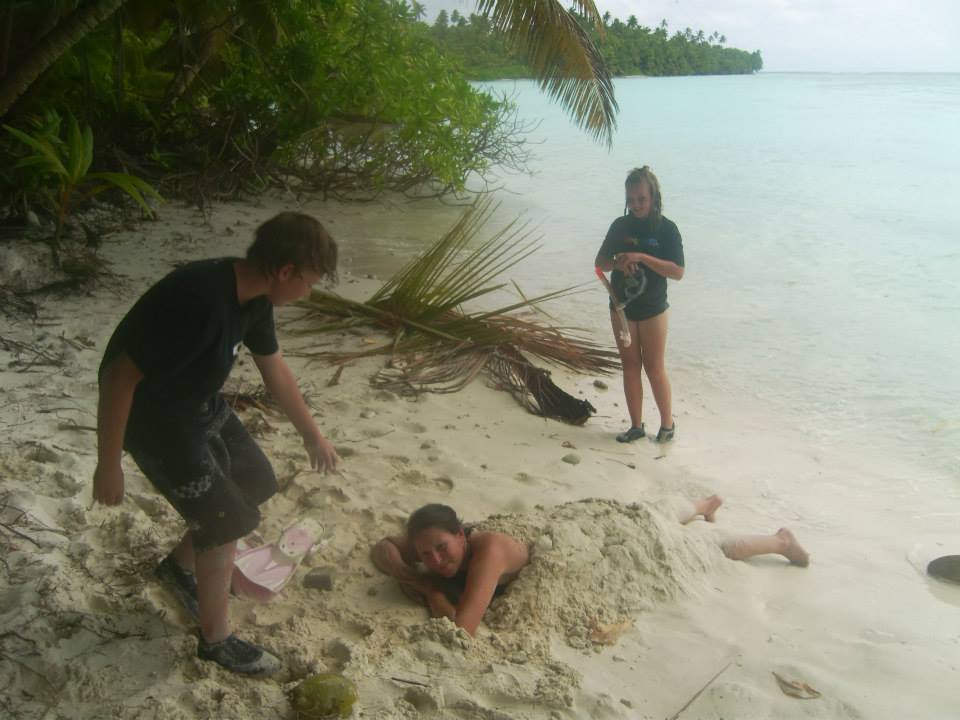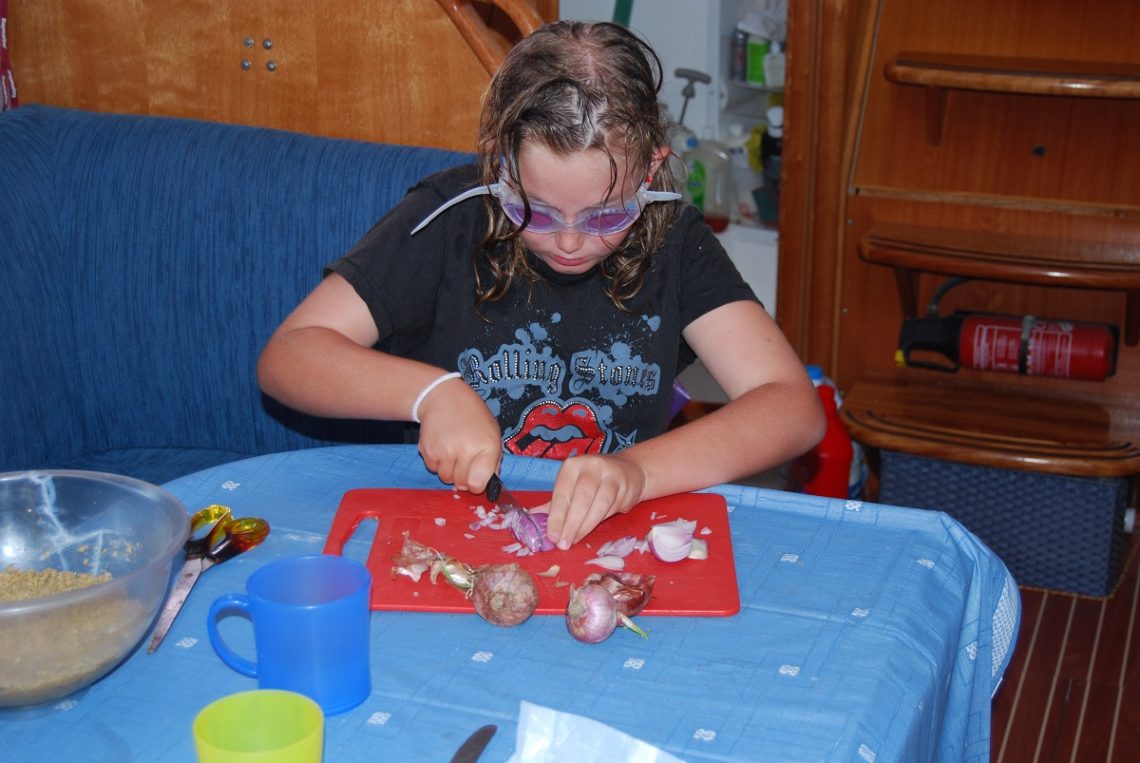
Eating and Drinking Island Style
The coconuts are plentiful around here and obviously there are not many people to take them. This place used to be a copra plantation after all. Earlier generations of yachties have made and left various tools to make the task easier; hooked poles for getting them down, leveraged-spike machines for husking them and verbal history of recipes for enjoying them. We have tried a salad made from the heart of palm – named Millionaire’s Salad because you have to cut down an adolescent coconut tree about two or three meters tall to harvest just the middle of the trunk. Sure, it’s fresh and crunchy, but it does seem like a waste of a coconut tree, even if there are thousands on each island. It is true though, you can have too many coconuts and my favourite use of them is the milk mixed with pineapple juice (admittedly, out of a carton) and dark rum…
We stocked up well and truly before leaving Dubai. We started out with about two thousand dollars’ worth of tinned/bottled/dried/preserved foodstuffs. The irony of having brought large quantities of tinned fish to this fishing paradise hasn’t escaped us and I think we may well be bringing a fair bit back to Dubai. Breakfast alternates between cereal (nice and easy, good for sunny days when you want to get outside faster), porridge (overcast, cool days. We pretend its winter…) pancakes and an occasional cooked ‘English breakfast’ of baked beans, fried eggs and wieners (saved for the really cold days, haha!). Outside of breakfast, fish forms a dominant ingredient in our diet, although the type on the table depends on the weather and also whether other yachties offer up their extra catch. BIOT patrols a three hundred mile Exclusive Fisheries Zone around Chagos, banning commercial fishing and allowing only rod and line fishing, meaning that if you can’t catch fish here… chances are you should take your rod and gear back to the store. Above all, an enterprising approach to using available resources is the key to interesting eating (and drinking). After all, the nearest store is a three-day sail away. And they’re not very well stocked anyway.
16 July 2009
A few years ago I realised that I’d started travelling more for ‘people’ than for ‘places’. This is one of the most beautiful places that I’ve ever been to, but the memories that will define our time here will be shaped mainly by the people who we’ve shared our time with. One of the websites we’ve found to be most informative for cruising information (www.hackingfamily.com) quotes “Getting to Chagos is difficult enough that only genuine, blue-water cruising boats can manage it.” We find that very flattering, but it’s true and it results in a great sense of camaraderie between the temporary residents.
There’s a fairly good social life too. Roughly every other night there’s an invitation for sundowners on someone’s boat, an occasional dinner invitation, or a beach bonfire BBQ. Communication around the anchorage is on channel 16 VHF radio and there are many invitations for snorkelling, walking around islands or just generally exploring.
I find it fascinating speaking to the other yachties, not just about their experience and learning from them, but also about how they come to justify their cruising lifestyle. As a quick straw poll of the seven yachts currently in the two anchorages in Soloman Atoll there’s a balance of ‘living the dream in retirement’ (two boats, both from NZ), ‘living the dream before kids’ (two boats, one American, one NZ/Brazilian), and then a couple of boats of ‘this is what we do’, including one Canadian couple who’ve been cruising for 26 years! All of the boats here except us are couples without kids, and five of the sixteen people are Kiwis; only three of the seven yachts here don’t have at least one Kiwi on board! We fit into the ‘we’re real new at this, all advice welcome’ category. When we first set out, Helen and I spoke about this being a once off experience. We’ll still be back in Dubai in September in time for the new school year, but now we talk about how we’ll do things differently when (not if) we do this again.
We know that when we leave here in roughly ten days, we may not see any other cruising yachts in the Maldives. Most cruisers skip it because the government fees are so expensive. We know it’ll be a completely different experience, mixing with more Maldivians and less Kiwis.
Follow and like us to be notified of future blogs!



